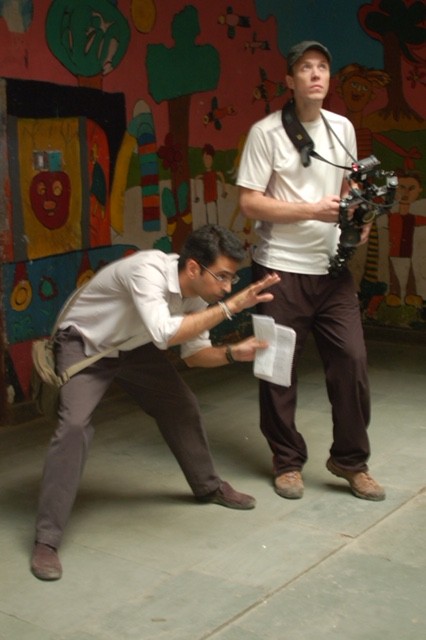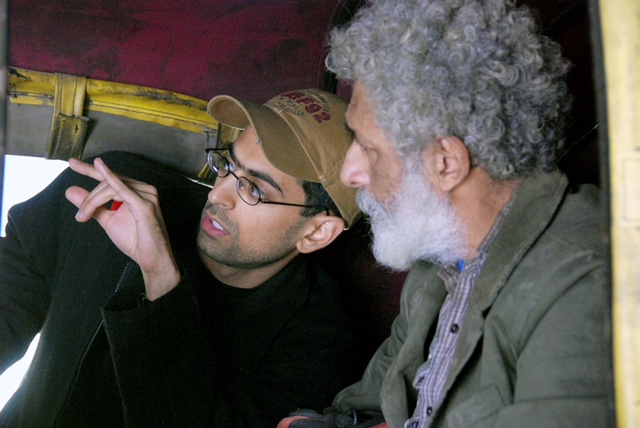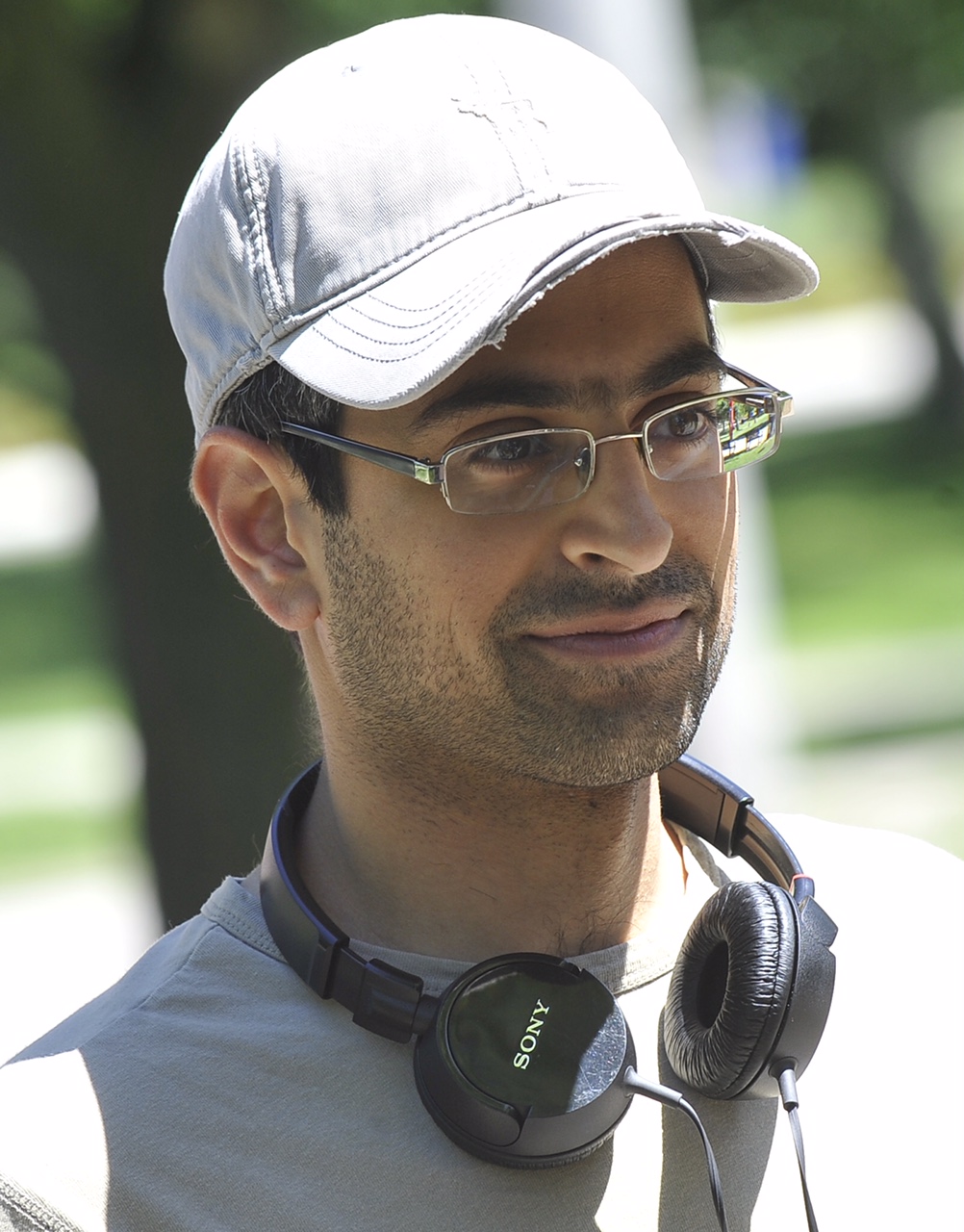By: Anchel Krishna
Richie Mehta is a writer and director known for feature films like Siddharth, Amal and I’ll Follow You Down. He is also an on-screen judge for popular OMNI’s reality TV series, Bollywood Star.
We talk to Richie about the the film industry, how he pursued his dreams, the role family played and advice he would share with those who are interested in the industry.
How did you end up in the film industry?
I worked to get into the film industry. Film Art school to post-grad film school to making short films, networking, hustling, and then getting funding for my first feature in 2006. All baby-steps.
Stereotypically, South Asian parents tend to encourage traditional careers (accounting, engineering and medicine are all stereotypes that come to mind). Did your parents encourage you to pursue a creative field?
My parents were supportive entirely. They didn’t have experience with the creative industry, but when they saw how hard working and driven I was, and methodical about how to get there, I think they realized it was in all of our best interests to help me along. And they never hesitated.

Richie with Producer Steven Bray on the set of Siddharth Photo Credit: Bob Gundu
What advice would you share with parents who want to encourage their kids to pursue their passion? How could they support them?
It’s about letting their kids find their way, especially through high school. All of my friends were pursuing science, law and economics. I was even going with that flow for a while. It was only near the end of high school I made big changes to switch over to the arts, and then went ahead on that track, with the work ethic I was developing already in place.
If parents see their kids spending all of their spare time on something with such vigor, they should probably use that information. I would be wary of my kids playing video games all day every day, because of the sedentary nature of that activity. But if they’re into it for more academic reasons (i.e. story construction or design) than that is also something to watch for. I suppose it’s about balance – developing a healthy lifestyle as a young person, as well as active interests in fields that you gravitate towards and can support a living of some kind.
My father made appointments with specialists in the field and took me to meet them, to get proper advice on everything from casting to animation in film. My mother even would meet a director in Toronto or in India, and encourage me to meet them as well and learn.
That’s just one example of being aware as a parent and asking yourself “What is at my disposal to help my daughter or son progress?”
What advice would you share with others who want to work in the field?
I would tell others in this field to work! Labour is the key. If you can develop that, and you enjoy the labour aspect of it, toiling away day and night, and not complaining about it (this is a choice!) then you have a shot.
Do you think South Asians are adequately represented in the film industry (Bollywood, obviously) but what about crossing into western markets? Is that a goal you always had in mind?
I think we have an intimate community in the industry here in the west. On camera performers are vastly underrepresented in terms of getting opportunities to be on TV or film. But there is a wide range of great talent out there I would say.
Though I am always amazed when someone young comes along, usually just out of school, having trained, and they’re ready to go into the mix. I love seeing that optimism. In terms of my goal, it was never South Asian oriented. I just loved film. It was only after I graduated film school that I realized I had such support in the community, and I had something to say as well about it. Now it’s become my life project, to explore the culture in different ways.

Richie with Naseeurddin Shah on the set of AMAL Photo Credit: Bob Gundu
South Asians have done well in the literary world. Do you think this trend will cross over to other creative industries?
I hope so. It hasn’t been the same in other arts fields, in terms of mainstream appeal. I do hope that changes soon for the better. Of course there are South Asians behind the scenes on major film and shows that we consume that we may not think about (such as the director of “The Dukes of Hazzard” or the “Smurf” films for example!) and that has to be taken into consideration when judging how successful people from our community have been.
What are some of the biggest challenges you’ve faced in this industry?
Writing. It is always the challenge, and takes years for me to get right. If I do, the rest seems to come together with the right focus. But if the script is mediocre, everything is challenging. I suppose it’s like saying if the relationship is faulty from the core, no amount of smoothing over can help, it will always be a challenge.
What are your thoughts on Bollywood today? Has Bollywood or the image of Bollywood changed)?
Bollywood is changing before our eyes, and I find it hard to keep up without living there full time.
I still believe that the film industry in India could do more to penetrate young minds with messages that can help, without losing the entertainment value (and this was done over and over in the past). But really, what do I know? I’m a Canadian filmmaker who’s working with amazing talent in India, and telling (I hope!) universal stories.
I’m lucky to work with people who making a living in Bollywood, but I’m not sure I’ll ever really understand the nature of that industry.
Tell us about one of your coolest experiences that made you feel like you “made” it?
I was at a theatre in Colarado and I shook the hands of Harrison Ford and George Lucas within the span of two minutes. Lucas was screening one of his films in the same venue as I screened my film the night before. That was cool.
What are you working on next?
I’m working on several projects. Two are India based, one is China based. All are based on personal experiences, and I’ve been researching and writing non-stop for the last few years on all of them. I’ll let you know which one reaches the finish line first!
Learn more at www.poormansproductions.com and follow Richie on Twitter @richiemehta.



There are no comments
Add yours